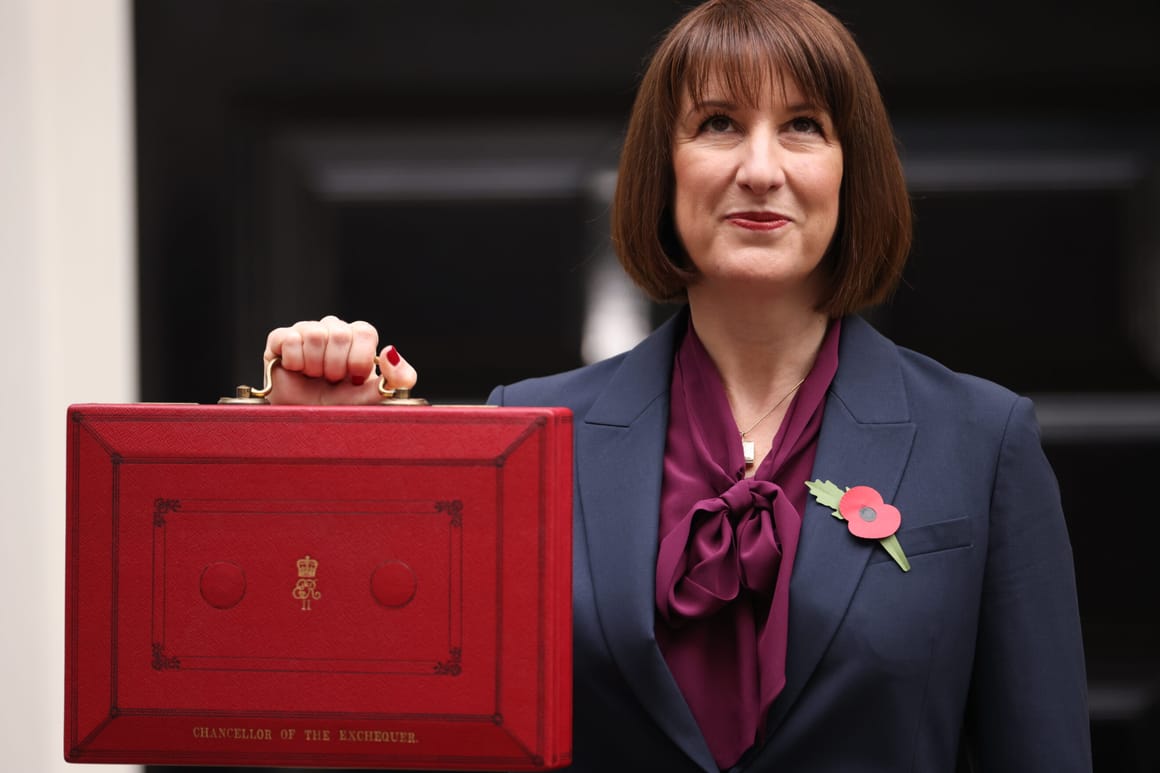
Chancellor Rachel Reeves delivers a surprise Downing Street speech, hinting at tax rises in the upcoming Autumn Budget [Image by Politico]
(The Post News) – Labour Chancellor Rachel Reeves gave her clearest indication yet that tax rises are coming in her Autumn Budget as she delivered an unannounced speech outside 10 Downing Street on Tuesday morning. “My budget will be about fairness and opportunity”, Reeves said, but warned that Britain must confront “pressures on the public finances.”
“These are important choices facing our state that will impact the future of our country for years to come,” Reeves said. “I want people to understand the circumstances we are facing, and the principles guiding my choices.”
The Chancellor pledged that her priorities include the protection of the National Health Service, bringing down national debt, and easing the cost-of-living crisis. She said she will make “the necessary choices” to rebuild the economy and get inflation falling.
Reeves Lays Groundwork for Tax Increases
Comments from Reeves, just three weeks ahead of her Nov. 26 Budget, were widely seen as an attempt to ready voters and markets for higher taxes. Labour had promised ahead of its 2024 election victory not to increase income tax, VAT or National Insurance contributions. Reeves refused to say if she would breach that commitment, telling reporters only that she was “setting the context for the Budget.”
The Chancellor reiterated her “iron-clad commitment” to her fiscal rules, which require the government to fund day-to-day spending through tax revenues and ensure debt falls as a share of GDP by 2029–30.
Financial markets initially welcomed her message of fiscal discipline. The yield on 10-year UK gilts fell during her remarks, but the pound later dropped to a seven-month low of $1.31 against the dollar.
The opposition accused Reeves of paving the way for another big tax raid. Shadow Chancellor Sir Mel Stride said her “emergency” speech confirmed public fears that households and businesses face new tax hikes. “If Reeves breaks her promise and hikes taxes again, she must go,” Stride warned.
Reeves raised around £40 billion in her first Budget last year, mostly from business taxes, which she described as a “one-off.” However, weaker economic forecasts have eroded that fiscal buffer. The Resolution Foundation now predicts a £4 billion shortfall and warns that avoiding big tax changes could “do more harm than good.”
The OBR is likely to downgrade productivity forecasts, which could add £20 billion to the amount Reeves needs to raise to achieve her fiscal targets.
Yet, the Chancellor has a very tough decision ahead of him, said Eurasia Group’s Mujtaba Rahman. “The economics point to a ‘go big’ strategy: another large tax hike, potentially including income tax, to close a £30 billion gap,” he said.
Balancing Fairness and Fiscal Reality
Reeves said the government should make “responsible choices, not short-term fixes.” She blamed Britain’s sluggish productivity on years of Conservative mismanagement, Brexit, and cuts to infrastructure spending.
“The world has thrown more challenges our way,” Reeves said. “Each of us must do our bit for the security of our country and the brightness of its future.”
Business leaders are concerned that more tax hikes could slow growth. Chief Executive of Associated British Foods, George Weston, stated: “Last year’s Budget left scar tissue. Consumer confidence dropped, and we hope it doesn’t happen again.”
But despite the backlash, analysts say Reeves is focused on protecting Britain’s financial reputation. “She’s speaking to the markets as much as to voters,” said Carsten Nickel of Teneo. “They want reassurance that fiscal discipline remains intact.”
This Autumn Budget will put both Reeves’ economic credibility and Labour’s political resilience to the test. A breach of a manifesto pledge on taxes could damage public trust, while failing to raise revenue entails deeper borrowing and instability.
Reeves concluded with a message of resolve: “There is a reward for getting these decisions right, to build more resilient public finances and give businesses confidence to invest.” With the Autumn Budget just weeks away, Rachel Reeves has made one thing clear: tax rises are no longer a question of if, but how much and where.



